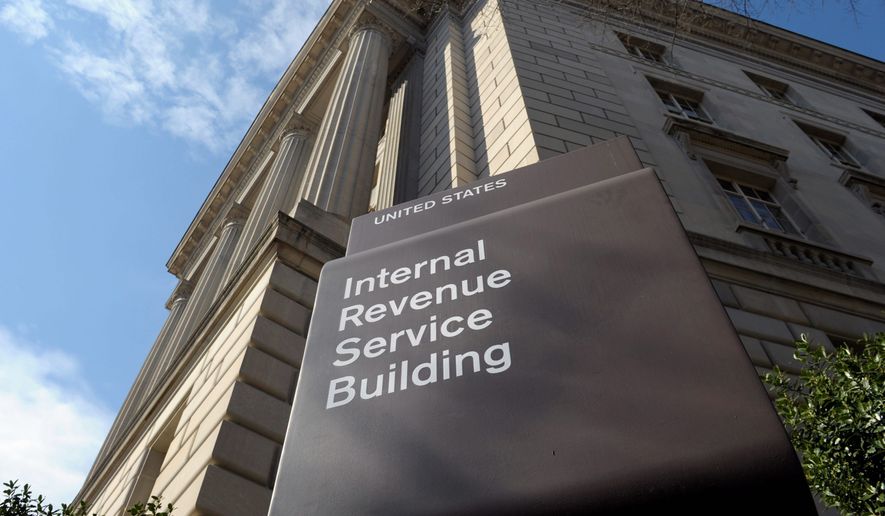A federal judge has ordered the IRS to finally clean up the tea party targeting mess, giving the tax agency less than a month to decide on a handful of applications that are still pending more than three years after officials first admitted they were targeting the conservative groups and subjecting them to intrusive scrutiny.
The IRS also must file a brief detailing the steps it has taken to prevent further targeting and to make sure the tea party groups don’t face any more fallout from the stigma of having been singled out in the first place, U.S. District Judge Reggie B. Walton said in an order issued late Friday.
Judge Walton ordered final decisions on two applications that have been pending for years and said four other groups that had withdrawn their applications amid the unconstitutional targeting can resubmit and the IRS must decide on those, too, by Nov. 11.
The Albuquerque Tea Party, which filed its application in December 2009, has been waiting nearly seven years. Unite in Action, a Michigan-based group, applied in 2010.
Judge Walton called that “an exorbitant period of time” and said the IRS should have been able to act once it admitted it was targeting the groups.
“These determinations should have been made by now,” he said at a hearing last week.
Joseph Sergi, the Justice Department lawyer handling the case for the IRS, initially seemed to object, saying the IRS needed to let its own process play out. “We can’t rush, or not rush, the process,” he said.
But as it became clear that the judge was fed up with the delay, Mr. Sergi changed his tone and said the wait had grown too long.
“I agree, your honor,” he told Judge Walton.
The order doesn’t mean the groups have to be approved. The IRS can go through its regular process to decide whether the organizations meet the criteria for nonprofits — and in particular whether they limit their political activities in accordance with the rules.
But the judge’s order is yet another black eye on the tax agency, which for years has resisted calls to halt the targeting.
The IRS admitted in 2013 that it singled out conservative and tea party groups for special scrutiny. The agency created “be on lookout,” or BOLO lists that flagged the groups and shunted them into a more intrusive screening process.
Groups were forced to answer probing — and the agency now admits inappropriate — questions about members and their associations.
IRS officials insist the targeting ended in 2013 after they suspended use of the BOLO lists and agreed not to ask inappropriate questions. But they have refused to concede that they violated the groups’ constitutional rights and have said some probing questions are necessary.
A federal appeals court this summer ruled that as long as some groups are still blocked from tax-exempt status, the IRS is still targeting. Groups that went through the process have also sued, arguing that they are more likely to face audits or other adverse consequences because they were targeted in the beginning.
Judge Walton said that in addition to processing the outstanding applications, the IRS must prove that it has ceased any ill behavior toward the tea party groups. He said they must certify that in a filing next month — along with proof.
Three groups that applied years ago are still awaiting approval. Two of them are in cases pending before Judge Walton, while another, the Texas Patriots Tea Party, is part of a class-action lawsuit in federal court in Ohio.
Earlier this month, the IRS sent the Texas Patriots Tea Party yet another round of probing questions — the fourth since the group applied for nonprofit status in 2012.
In documents filed in court, IRS agent Jerry Fierro demanded that the group explain its involvement with “educational workshops, speaking events, voter registration drives, fund raisers and straw polls.”
The IRS, which has held up the application for 41 months, gave the tea party group 30 days to respond or have its application rejected as incomplete.
• Stephen Dinan can be reached at sdinan@washingtontimes.com.




Please read our comment policy before commenting.